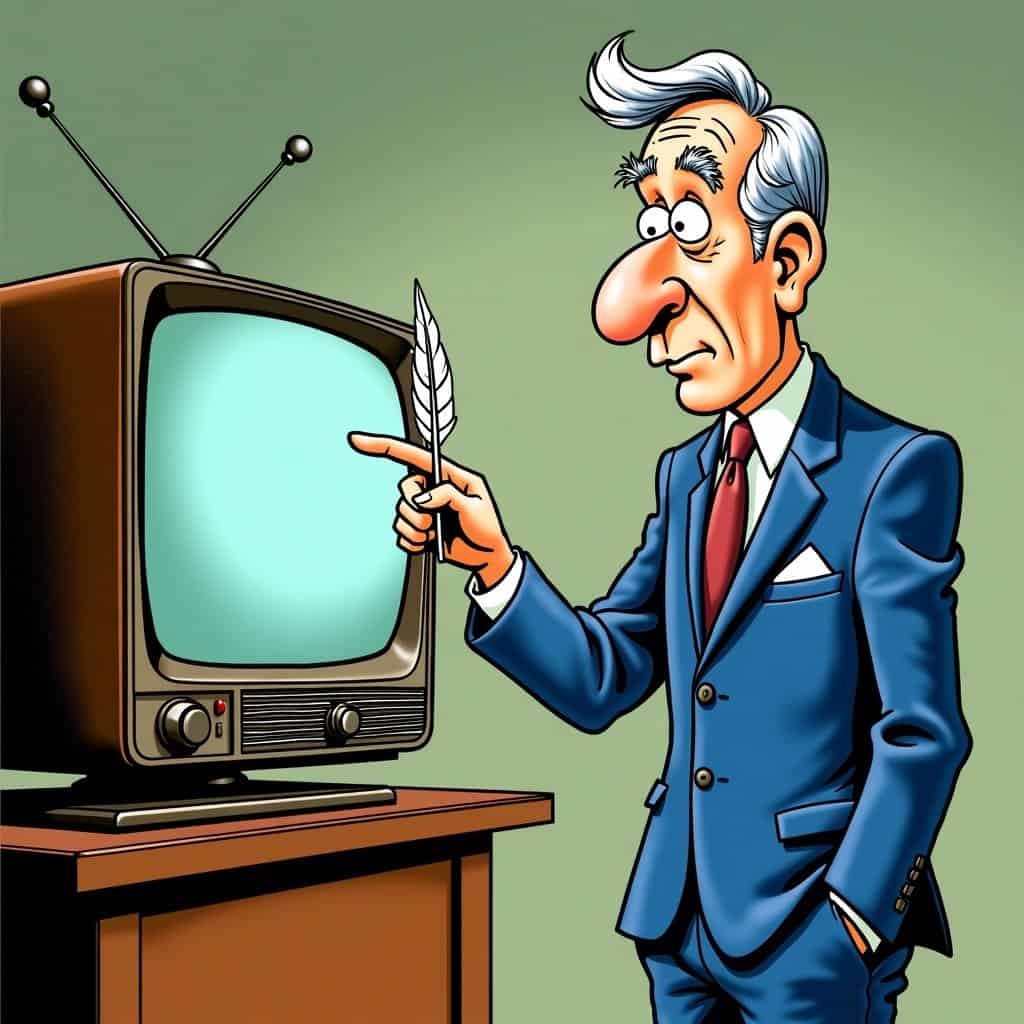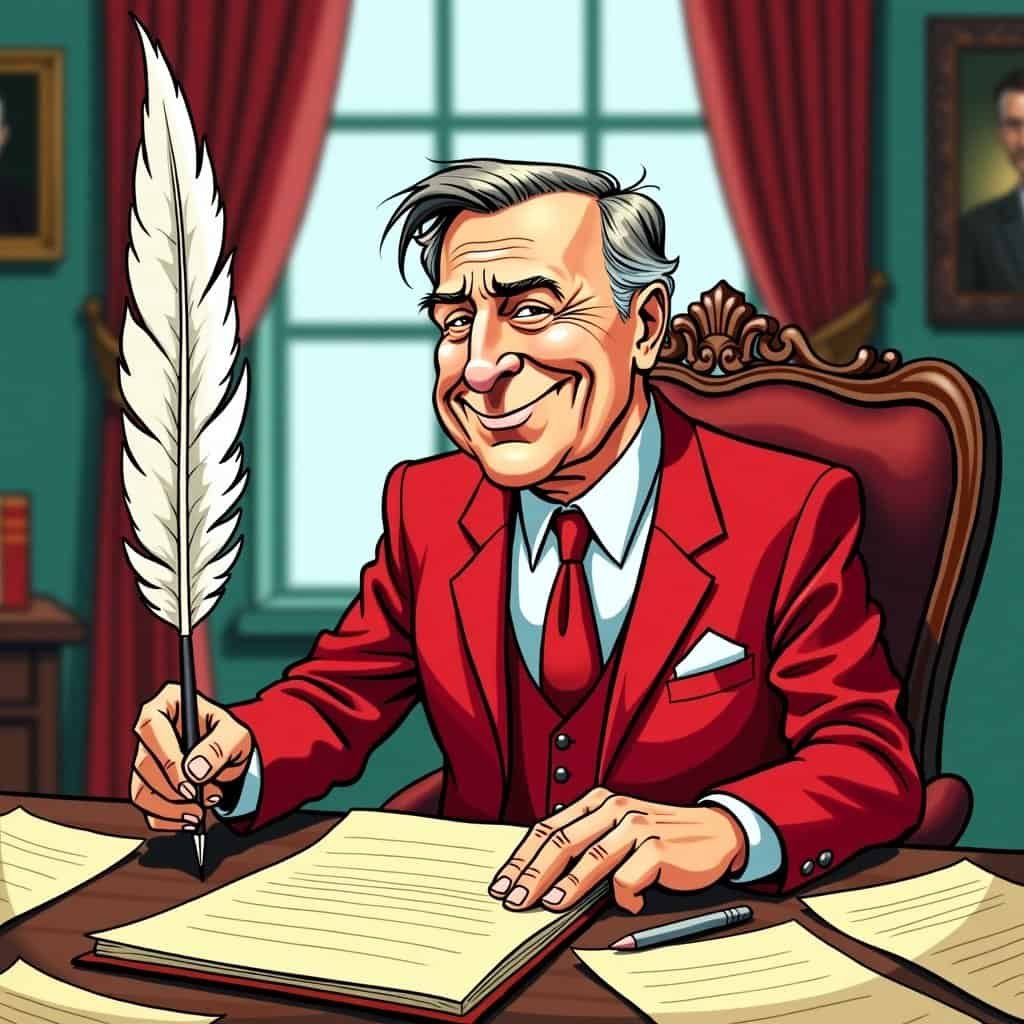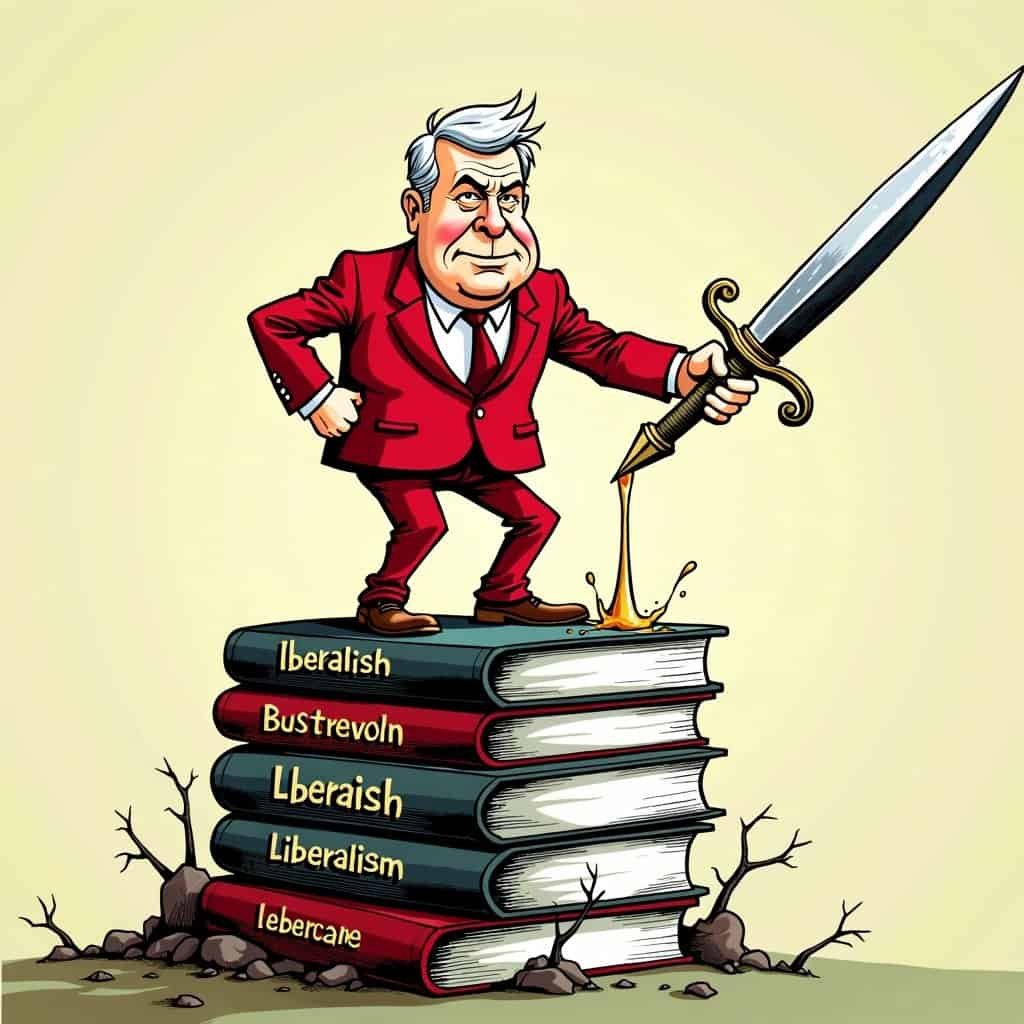When we talk about champions of conservative values facing the often tumultuous seas of academia, one name sails above the rest: William F. Buckley Jr. This Harvard-educated beacon of intellectual prowess did more than just debate – he waged a one-man crusade for academic freedom that left liberal intellects absolutely bamboozled.
Buckley, an unwavering conservative, certainly ruffled some feathers at the hallowed halls of Yale when he published his seminal work, ‘God and Man at Yale.’ Think of it as a modern-day conservative reality check for those ivory towers, which were drowning in progressive pomposity. He argued against the faculty’s overbearing leftist agenda and advocated for the inclusion of free-market and Christian ideologies in the academic arena. No small feat amidst a monsoon of Marxism and Keynesian economics!
Now, if you haven’t read Buckley’s masterpiece, let me paint a picture. Imagine walking into a highly progressive vegan barbecue while munching on a juicy steak. Yes, that deliciously scandalous. Buckley was audacious and unapologetic, critiquing Yale’s curriculum while advocating for intellectual balance – ideas that seem foreign to today’s progressive echo chambers known as universities.
Buckley Beyond Writing: The National Review and Firing Line
Buckley’s boldness extended beyond just writing scathing critiques. He was a founding father of the conservative movement, launching the National Review in 1955. This intellectual lighthouse continues to shed light on conservative rationalism amidst waves of progressive ideals attempting to drown reason. Through the National Review, Buckley educated and mobilized countless conservatives, emphasizing principles such as small government, individual liberty, and the power of free markets – key tenets of academic freedom, if you ask any clear-thinking American.
Buckley’s influence wasn’t limited to the written word. He brought his articulate arguments to television with ‘Firing Line,’ a program that redefined public discourse. Picture this: an arena where liberal and conservative ideologies clashed amidst Buckley’s charming wit, rather than today’s more common scenario of liberals shouting their opponents into silence. ‘Firing Line’ became the Coliseum of intelligent debate, a place where ideas fought fiercely, and where Buckley’s advocacy for balanced discourse shone bright.
Buckley vs. Safe Spaces: The Battle for True Academic Freedom
His conservative values starkly contrast the progressive tendency to shelter students from opposing viewpoints in favor of safe spaces and echo chambers. Buckley stood firmly against coddling minds and instead fostered fierce debate. He understood that academic freedom hinges on the ability to confront and dissect all ideologies openly, a principle lost on many contemporary campuses.
Buckley’s Principles of Academic Freedom
- ✓ Encourage open debate and discussion
- ✓ Challenge prevailing ideologies
- ✓ Promote intellectual diversity
- ✓ Advocate for balanced curriculum
- ✓ Foster critical thinking skills
Let’s be clear: liberals and progressives advocate for academic freedom as well, but their idea often involves suppressing dissenting opinions to protect feelings – a stark variance from Buckley’s model. Today’s academic institutions could learn a thing or two by revisiting Buckley’s work and reinvigorating the principles of conservative academic freedom – encouraging students to question everything rather than indoctrinate unquestioningly.
Buckley’s legacy reminds us that intellectual diversity is the bedrock of academic excellence. His call for ideological balance within educational systems remains as vital as ever, especially in our current era, where academic freedom is continually being challenged by the woke brigades.
Buckley’s Enduring Impact on Conservative Thought
So next time you’re confronted with the monolithic liberal bias in academia, just remember Buckley’s indomitable spirit. It wasn’t just about winning arguments – it was about advocating for the intellectual liberty fundamental to true education. Buckley’s call for freedom and balance in academic discourse is not just relevant; it’s an imperative for preserving the principles of liberty, individuality, and economic freedom that make America great.
Stand tall, conservatives. Buckley’s spirit wanders those academic halls with you, reminding every freedom-loving American that the battle for true academic freedom is far from over. Carry on the fight, and remember Buckley’s legacy: never back down, always advocate for your right to think and to speak freely.
Table of Contents
- Buckley Beyond Writing: The National Review and Firing Line
- Buckley vs. Safe Spaces: The Battle for True Academic Freedom
- Buckley’s Enduring Impact on Conservative Thought






